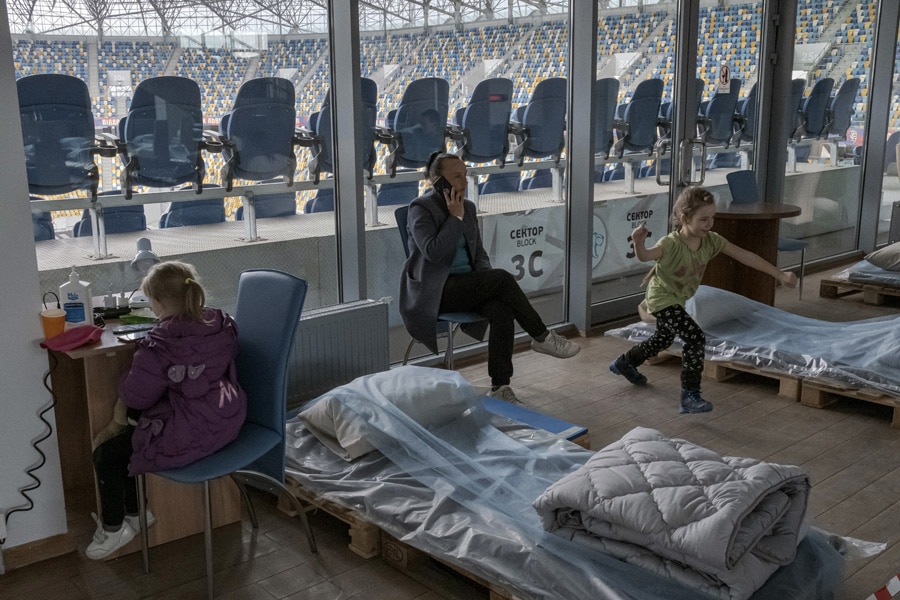
'Clear patterns' of Russian rights abuses found in Ukraine: report
Some of the atrocities may constitute war crimes, said investigators from the Organization for Security and Cooperation in Europe, who examined myriad reports of rapes, abductions and attacks on civilian targets, as well as the use of banned munitions
 People who fled the fighting in eastern Ukraine settle into the dormitory space at a football stadium that has been converted to a reception center for internally displaced people in Lviv, Ukraine, on Tuesday, April 12, 2022. President Vladimir Putin of Russia insisted on Tuesday that his war in Ukraine would succeed and that peace talks had reached a “dead end.” (Mauricio Lima/The New York Times)
People who fled the fighting in eastern Ukraine settle into the dormitory space at a football stadium that has been converted to a reception center for internally displaced people in Lviv, Ukraine, on Tuesday, April 12, 2022. President Vladimir Putin of Russia insisted on Tuesday that his war in Ukraine would succeed and that peace talks had reached a “dead end.” (Mauricio Lima/The New York Times)
Investigators from almost a dozen countries combed bombed-out towns and freshly dug graves in Ukraine on Wednesday for evidence of war crimes, and a wide-ranging investigation by an international security organization detailed what it said were “clear patterns” of human rights violations by Russian forces.
Some of the atrocities may constitute war crimes, said investigators from the Organization for Security and Cooperation in Europe, who examined myriad reports of rapes, abductions and attacks on civilian targets, as well as the use of banned munitions.
On Wednesday, civilians were still bearing much of the brunt of the seven-week-old invasion as Russian forces, massing for an assault in the east, bombarded Ukraine’s second-largest city, Kharkiv, striking an apartment building.
In an hourlong phone call with Ukrainian President Volodymyr Zelenskyy, President Joe Biden said the United States, already a major provider of defensive armaments to Ukraine, would send an additional $800 million in military and other security aid. The package will include “new capabilities tailored to the wider assault we expect Russia to launch in eastern Ukraine,” Biden said in a statement.
U.S. officials also said Wednesday that the United States, in helping Ukraine prepare for such an assault, had increased the flow of intelligence to Ukraine’s government about Russian forces in eastern Ukraine and the Crimean Peninsula, which Russia seized from Ukraine eight years ago. The administration also is considering whether to send a high-level official to Kyiv, Ukraine’s capital, in the days ahead as a sign of support for the country, according to a person familiar with the internal discussions.
©2019 New York Times News Service







